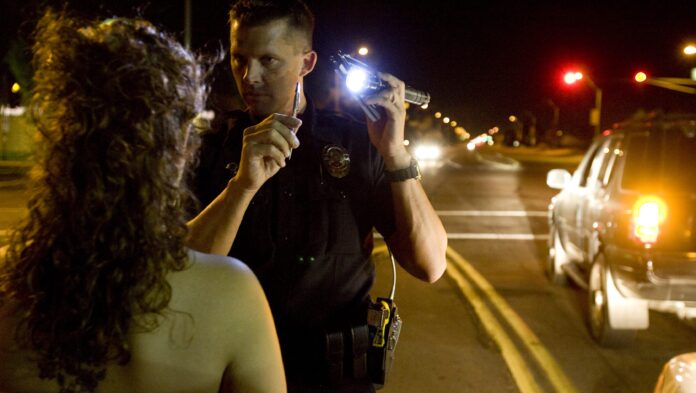
According to the CDC, over one million drivers are arrested annually for driving under the influence of alcohol or narcotics. This pervasive issue has far-reaching implications, extending beyond the immediate legal ramifications.
A DUI conviction can dramatically affect an individual’s life, particularly their job prospects and employment stability. The impacts of such convictions are not limited to the period of legal penalties, but they extend considerably into the future, significantly influencing a person’s career path.
This article explores the relationship between DUI convictions and their influence on employment opportunities. This includes immediate and long-term repercussions of DUI convictions, how their impact varies across different industries, their potential effects on current employment, and strategies to alleviate these consequences.
The intention is to heighten awareness about the significance of responsible behavior, specifically related to DUI, and highlight the collective societal responsibility in addressing the ramifications.
Understanding DUI Convictions

Driving under the influence, commonly referred to as DUI, is a serious offense defined as operating a motor vehicle while one’s blood alcohol content is above the legal limit set by statute (0.8%), which impairs the driver’s ability to operate the motor vehicle safely.
The legal implications of a DUI conviction can be severe, involving hefty fines, probation, and possible jail time. According to data from the FBI, there are over a million DUI arrests each year in the U.S., highlighting the scale and severity of the issue.
These convictions have long-lasting effects that extend beyond the legal consequences, significantly impacting the life and future opportunities of the convicted individuals, especially in terms of employment.
Immediate Consequences of a DUI Conviction
The first set of penalties typically include substantial fines, probation periods, and potentially even imprisonment. These penalties can vary based on several factors, including the specific jurisdiction, the presence of prior convictions, the competency of your DUI lawyer, and the circumstances surrounding the incident.
There’s often an immediate suspension or revocation of driving privileges, which can last several months or even years. This can create significant personal inconvenience and may also interfere with job-related duties, particularly for those whose work involves driving.
Many jurisdictions require individuals convicted of a DUI to attend mandatory alcohol education or treatment programs, which can be time-consuming and may also interfere with work schedules.
Long-Term Consequences

A DUI conviction can result in a long-lasting stigma, adversely affecting one’s personal reputation and social relationships, and possibly leading to isolation in certain social circles or communities.
More significantly, many employers conduct background checks as part of their hiring process, and a DUI conviction can be a red flag, making it more challenging for those individuals to secure employment. This is particularly true for jobs that involve driving, working with children, or positions in law enforcement and healthcare.
The conviction can complicate the job application process, as many applications require disclosure of criminal convictions, putting applicants in a challenging position.
Impact of DUI Convictions on Different Industries
The impact of a DUI conviction on job prospects varies significantly across different industries. For instance, in the transportation industry, such as trucking or taxi services, a DUI conviction can be particularly detrimental, often leading to immediate job loss or disqualification from potential job opportunities.
In the education and healthcare sectors, a DUI conviction may raise concerns about an individual’s decision-making capabilities and responsibility, potentially leading to disqualification.
In law enforcement and legal professions, a DUI conviction can be a significant barrier to entry or advancement, as it questions the individual’s adherence to law and ethical conduct.
How DUI Convictions Affect Current Employment

Employers value trust, reliability, and integrity in their employees, and a DUI conviction might raise questions about these attributes.
For certain professions, a DUI conviction could provide legitimate grounds for dismissal, especially when the job involves driving or ensuring the safety and well-being of others. For instance, a school bus driver or a delivery driver may lose their job after a DUI conviction. The conviction can also lower the chances of promotion as it can be perceived as an indicator of poor judgment or unreliability.
Professionals in fields that require maintaining licenses, such as law or medicine, may find that a DUI conviction complicates the process of license renewal, potentially jeopardizing their ability to continue practicing in their field.
Potential Ways to Mitigate the Impact of a DUI Conviction
Individuals may seek legal avenues like expungement or sealing of records, which essentially “erases” the conviction from public records. The eligibility and process for expungement vary widely and depend on numerous factors, including the jurisdiction, the nature of the crime, and the individual’s subsequent behavior.
However, it’s worth noting that certain industries or employers, like law enforcement or government agencies, may still access sealed or expunged records.
While a DUI conviction can be a red flag for potential employers, demonstrating transparency about one’s past, taking responsibility, and illustrating how one has grown from the experience can potentially assuage concerns.
Individuals can also utilize resources for rehabilitation and support, such as substance abuse counseling or support groups. These resources can demonstrate an individual’s commitment to change, which may positively influence how potential employers perceive a past DUI conviction.
DUI convictions can profoundly impact individuals’ employment prospects and current job status, affecting various industries differently. Yet, through honest disclosure, rehabilitation efforts, and potential legal recourse, these impacts can be mitigated.
As society works to decrease DUI incidents, employers should foster supportive environments and implement fair practices that respect both workplace safety and the potential for personal growth and rehabilitation of those with DUI convictions.








